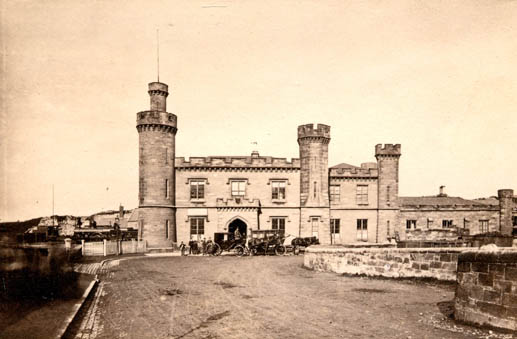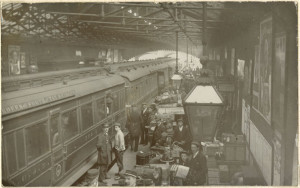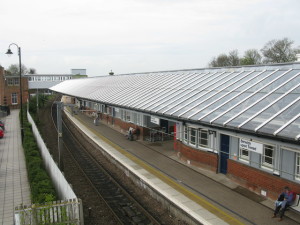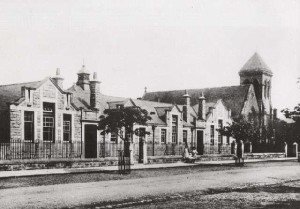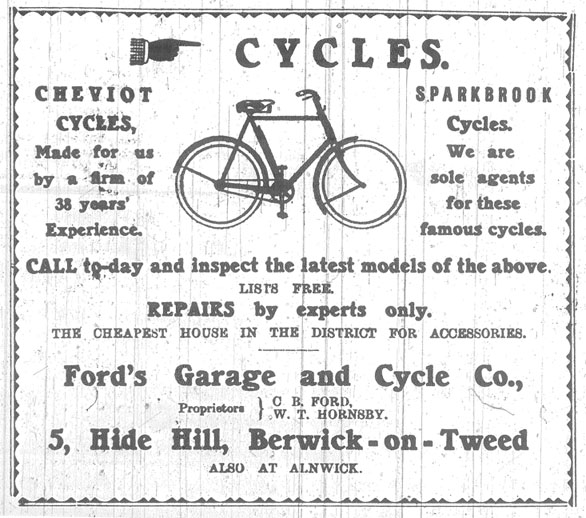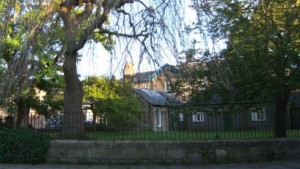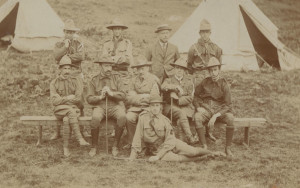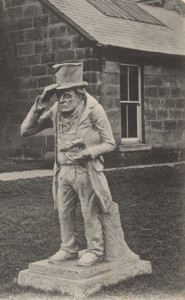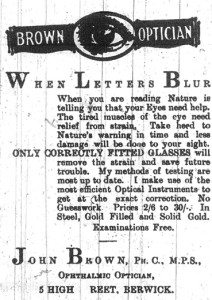12th March 1915
RECRUITING AT HIRINGS
During the hiring week special efforts were made to enlist recruits for the Army from amongst the farm labourers. Taken all over the results were far from satisfactory. Various reasons have been assigned for the failure of the farm servants to come forward to help their country.
One of these was the alleged coercion on the part of the farmers and we believe that to an extent that allegation was true. The real reason for the holding back of the hands is indifference or else inability to comprehend the urgency of the need for men. A walk through the crowd at Berwick on Saturday proved this to the hilt. The manner in which the advances of the recruiting sergeants were met was sufficient to show that the average farm labourer has no intention of enlisting. In fact, a goodly number were inclined to indulge in cheap witticisms at the expense of the recruiting officers.
It was stated recently that there are 80 farms in Berwickshire from which not a single man has gone to join the Army. A preeminent agriculturalist on the other side of the Tweed assures us that in North Northumberland there are twice as many farms about which the same discreditable tale may be told. The gentleman referred to offered his men their situations back when the war was over and gave them every inducement to enlist but no: “There are plenty of men without us.” Was the invariable response. Another farmer told his men he expected them to go but they declined and he went himself. On the other hand there are farmers with several able bodied sons none of whom has taken up arms.
Thus it is evident that there are faults on both sides but Saturday’s market made it clear that if coercion has kept back a certain number the vast majority are holding back through sheer indifference.

BERWICK – FEW COUNTRY VISITORS
Despite the fact that the country is at present plunged in the biggest struggle it has ever witnessed, the hiring’s at Berwick on Saturday were much the same as in former years, with the exception that there was a slight falling off in the number of people who visit the town on such an occasion as this.
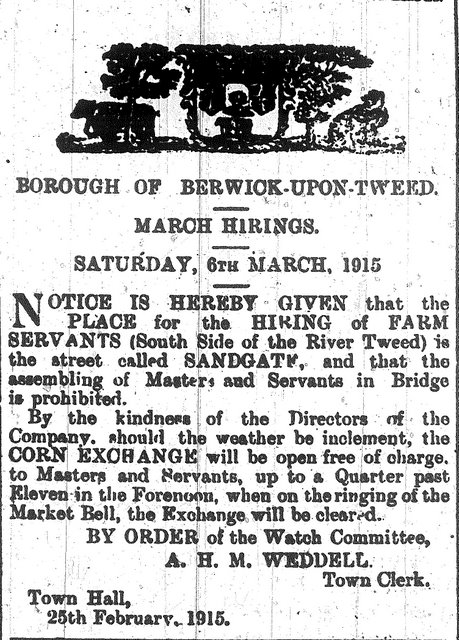
Like many other hiring markets, Berwick Hiring’s are largely such in name only, and this was exemplified by the small amount of hiring which was entered into on Saturday. As usual, those from the English side took their stand in Sandgate, and the Scottish market was held at the Scotsgate. There was a demand for considerably increased wages, but for the most part the servants were beaten down, although, generally, wages had a slightly upward tendency. On the south side of the Tweed single men engaged at 20s to 21s. On the north side single men got to 20s and 21s if they were able to supply a woman worker. For the hill districts the wage was the highest in the market, and for single men from 22s to 23s was given.
Recruiting sergeants were busy in the streets and a fair number of recruits were obtained. To help recruiting the pipe band of the 10th Royal Scots paraded the principal streets during the afternoon, and perhaps it was the call of the pibroch which attracted the men from the hills and glens, and caused them to rally to the flag.
A son of the plough, who has been appointed organiser of the Ploughmans’ Union from Scotland’s “granite city” was in the south market agitating for an increase of wages. With a fairly large crowd round him, he urged the men to make a demand for a living wage of 24s per week, a ten hours’ day, and a weekly half-holiday. Evidently the thought of such an earthly Paradise was not alluring enough to call for a feeble “hear, hear.” But when in scathing accents he told them not to be beasts of burden all their days, a perceptible smile ran round the faces of the men. Probably it was because they were a well-contented looking lot of persons that it struck them as humorous to be classed as beasts of burden. Of course, such a phrase is a pet one for the organisers and as it failed to forcibly strike the audience the speaker turned to other matters. His appeal to them to unite to demand a better and higher wage with all the etceteras did not evoke much enthusiasm.
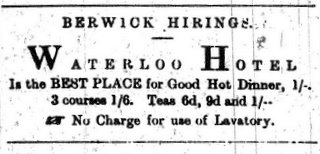
A number of peripatetic merchants took their stand in High Street, where they appeared to do a roaring trade. The “jewellers” with loud hammerings on a wooden box poured out with vivid descriptions of the high-class goods – all made in England (?) – and then gave them away merely to advertise their firm…
…Only one of the type who sell 7s 6d for half a crown appeared in the market this year but he has been a regular visitor here, and it was perhaps that a number of his audience had in former years received 2d and a brass chain for their half crown that caused the vendors business to be dull.
Owing to huts for the military having been erected on the Parade there was not much room for the “shows” and there was a smaller number than in former years… …A new game made its appearance, and it was quite a money-making concern-occasionally. With five rings for two pence one tried to ring silver money from threepenny pieces to halfcrowns, but the rings were very light and when aim was taken the rings were in the habit of going everywhere except the object at which they were aimed. The owner of the stall, of course, made more than was won. Shooting booths and cocoanut shies were freely patronised and the fun of the fair was quite as high as ever.
Unfortunately, through lack of space, the organs on the roundabouts were in close proximity and the result was not pleasing to the musical ear. However, as the hour of twelve approached “God Save the King” was switched on and the smallest organ won by a short neck – so ended the 1915 March Hiring. It was rather uncomfortable for the Royal Scots who had to sleep in the huts next the organs where they retired at 9:30. It is not recorded whether or not they got out of bed to stand to attention when the National Anthem was played!



